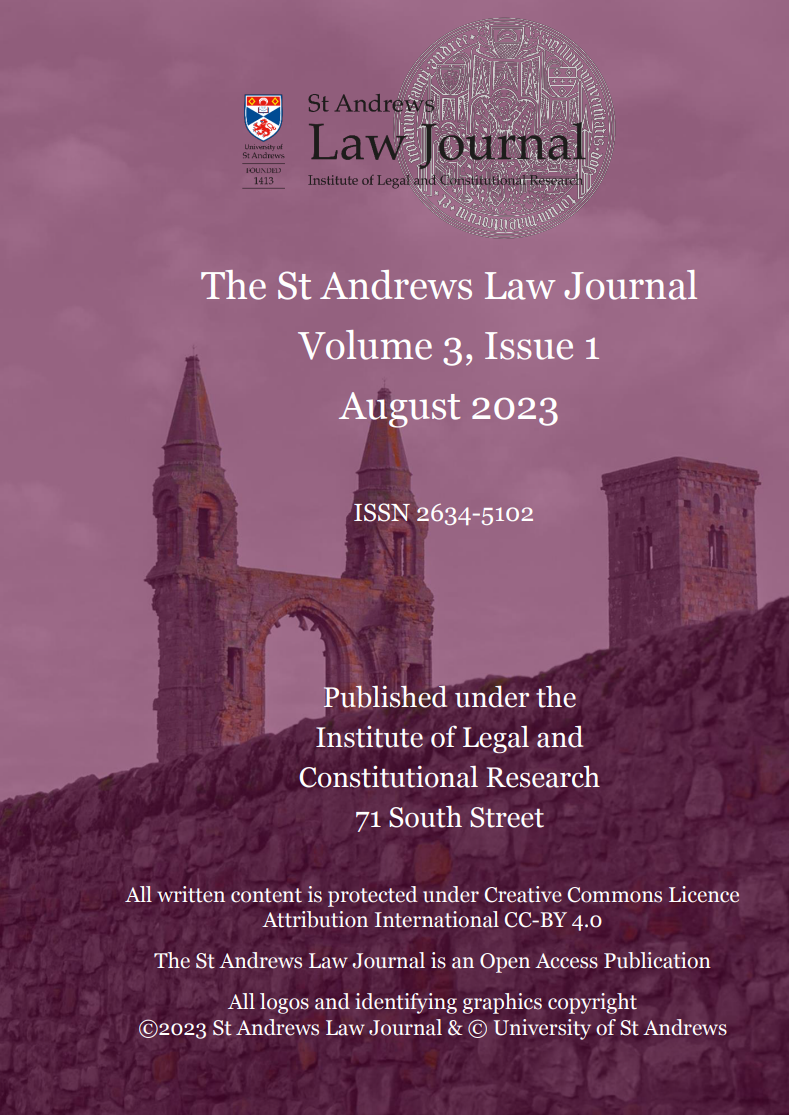Why Rape Law Revisions should be Consistent with Anderson’s Negotiation Model
Main Article Content
Abstract
In this essay I argue that the current law structure unobjectionably fails to protect women against cases of rape and needs reform. I further maintain that Anderson’s suggestion of ‘negotiation consent’ is the most appropriate line of reform, and I will defend her proposal in the face of potential objections. The current rape law in the UK was implemented in 2003, which revised previous laws firstly defined in the Sexual Offenses Act of 1953. Despite the ostensibly ‘objective’ nature of this law, which will be further examined in this essay, many feminist philosophers have noted the biases within the law which favour male interests. This essay explores the present issues within UK law, as well as our current understandings of what constitutes ‘a reasonable belief of consent’, that fail to protect women in instances of rape. This foundational attitude towards such matters influence performative revision models, such as the No Model and the Yes model, which I consider within this essay. Yet the inadequacies of such approaches, as I demonstrate, mirror some of the current issues with rape law in the UK today; such as the lack of recognition of men’s frequent inability to interpret women’s nonverbal behaviour and disregard for instances where one person changes their mind.
Furthermore, I advocate for Anderson’s proposal of the negotiation model as an alternative reform of the law as well as society’s attitude towards sex and how consent can be clearly obtained. This model, when legally applied, will not only legally protect women in cases of rape, but eventually protect them from the present societal norms that perpetuate the imminent risk of rape and sexual exploitation.
Through making the act of negotiation a legal requirement, I maintain that there would be a ‘ripple effect’ throughout society that would, eventually, lead to a change in public expectations of men and women.
Anderson’s emphasis on either party being able to initiate the negotiation establishes a much more open-minded attitude towards gender roles and expectations of individuals based on their gender. This is the greatest strength of Anderson’s argument, as this equality-driven initiative would eventually seep into society’s wider expectations of individuals when initiating sex, and create a world where understanding what the other person is anticipating in a sexual situation is the norm.
Article Details

This work is licensed under a Creative Commons Attribution 4.0 International License.
Authors who publish with this journal agree to the following terms:
- Authors retain copyright and grant the journal right of first publication with the work simultaneously licensed under a Creative Commons Attribution License that allows others to share the work with an acknowledgement of the work's authorship and initial publication in this journal.
- Authors are able to enter into separate, additional contractual arrangements for the non-exclusive distribution of the journal's published version of the work (e.g., post it to an institutional repository or publish it in a book), with an acknowledgement of its initial publication in this journal.
- Authors are permitted and encouraged to post their work online (e.g., in institutional repositories or on their website) prior to and during the submission process, as it can lead to productive exchanges, as well as earlier and greater citation of published work (See The Effect of Open Access).

